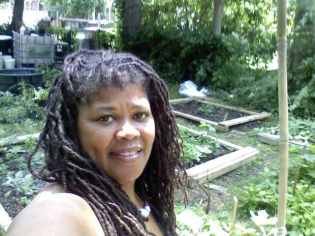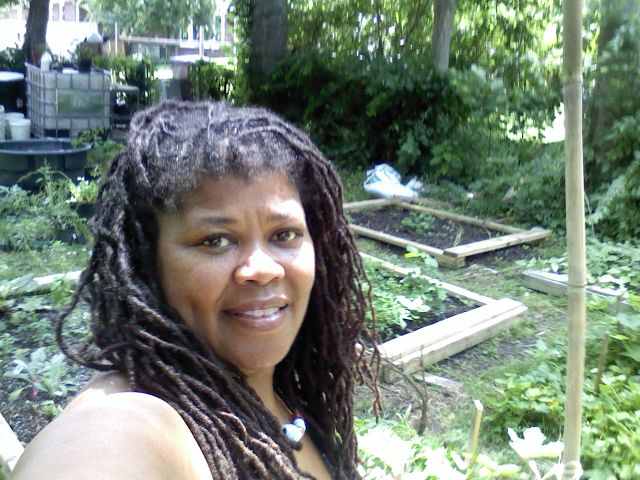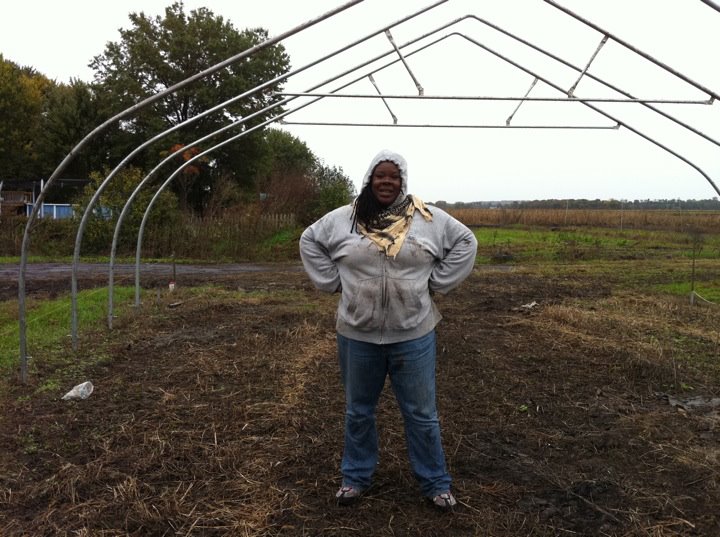 Grist is proud to present the Change Gang — profiles of people who are leading change on the ground toward a more sustainable society and a greener planet. Some we’ve written about before; some are new to our pages. Some you’ll have heard of; most you probably won’t. Know someone we should add to the Change Gang? Tell us why.
Grist is proud to present the Change Gang — profiles of people who are leading change on the ground toward a more sustainable society and a greener planet. Some we’ve written about before; some are new to our pages. Some you’ll have heard of; most you probably won’t. Know someone we should add to the Change Gang? Tell us why.
In her backyard in Nashville, Tenn., Trazana Staples is growing turnip greens, mustard, kale, and two kinds of garlic (white and Siberian). “That’s the winter garden,” she says, with a tone of pleased satisfaction.
Her vegetable patch isn’t just a good source of produce. For Staples, it’s a daily reminder that profound personal change is possible.
Ten years ago, says Staples, her idea of “eating healthy” was to choose the chicken sandwich instead of the burger at McDonald’s. And it wasn’t working. Only 5 feet 4 inches, Staples weighed 325 pounds and suffered from a host of fitness-related medical problems. Before she turned 40, she’d already had her gallbladder removed and had a hysterectomy. Her doctor was warning her “that I had to decide whether I was going to live or die.”
She began trying to stick to a diet, but after losing weight, she’d quickly gain it back. “I was like a yo-yo,” she recalls, ruefully.
Then, one day in 2007, she went to a local theater that specialized in independent films and saw Food, Inc., the documentary on the dark side of the industrial food system.
“That movie totally changed my everything,” remembers Staples. “I saw how healthy food is connected to the environment — there are no ifs, ands, or buts about it. And from that point on, I got involved.”
“I started learning how to blend and prepare my food. I began eating a lot of raw foods, fruits and vegetables, healthy food, tasty food. One of the challenges is to maintain our culture in natural foods, and I found that I can do that. I can keep my greens, and prepare them in a healthy way and they still taste good, and I can prepare my cornbread without the eggs, without the butter, and without the milk, and still have my soul food meal.”
Staples not only managed to change her eating habits once and for all (she has lost 120 pounds, and counting); she also remade herself into a crusader for healthy, sustainable food in her own community. She founded Another Avenue Cultural Resource Center to spread the new gospel and joined a half-dozen local progressive advocacy organizations.
The deck is still stacked against her. North Nashville, she says, is home to the largest “food desert” in Davidson County — a vast region where the only outlets for residents to buy groceries are corner stores that are more likely to sell fried potato wedges than bananas or apples. Even worse, notes Staples’ business partner, Bryan Trotter, some of the stores within driving distance that do sell organic food don’t accept food stamps for their produce. That places low income people who want to upgrade their diets in a double bind. To top it all off, for the last two years, Staples was pushing her healthy eating agenda with the help of a grant from the Tennessee Alliance for Progress — but when that group lost its funding, she lost hers.
But there’s no defeating Trazana Staples. She still intends, eventually, to turn the Another Avenue Cultural Resource Center into a natural foods store. She and Trotter have set plans in motion to create what they call a “Village of Industry” — a network of cooperative businesses based on sustainability that will provide sorely needed green jobs in an economically depressed area. In January, she kicked off Fruits Over French Fries, a new program targeting childhood obesity.
“I had to get a full-time job to keep the ship afloat until we get more funds,” acknowledges Staples. “We do have some people that give donations, or they come and do some physical labor; building garden beds or the compost bin or planting and composting, and all of that makes a difference, little by little. Rome wasn’t built in a day — these things take time. We have to change the mindset, and the best way to do that is for people to actually see you living it, doing it and applying those principles in your life. “



